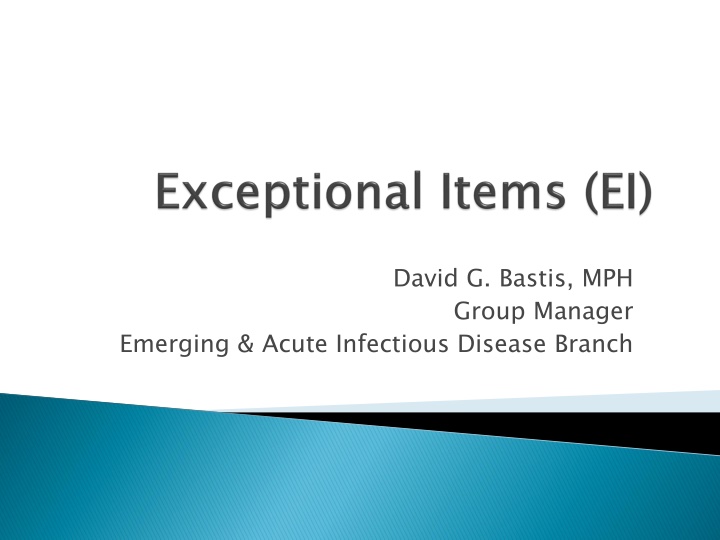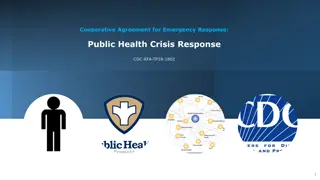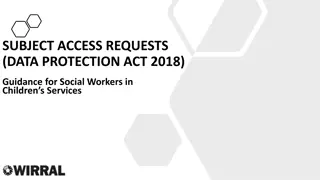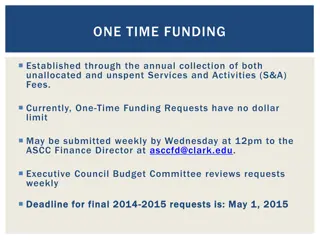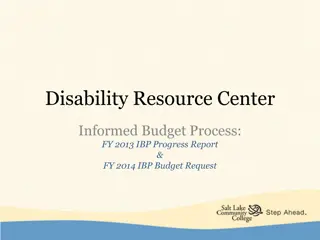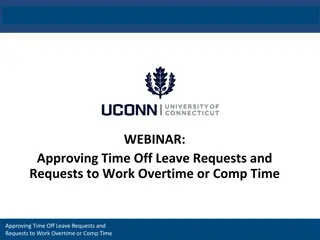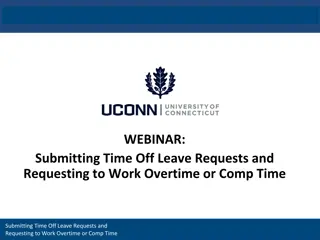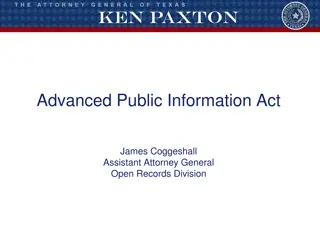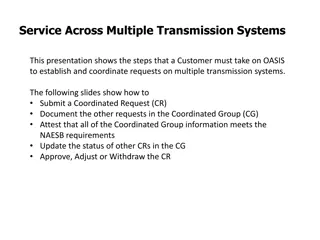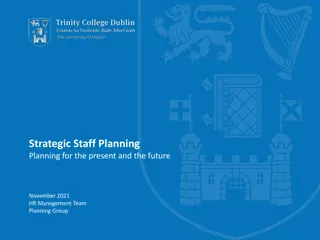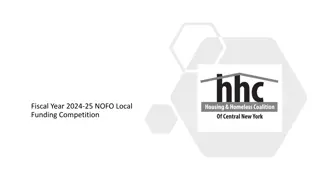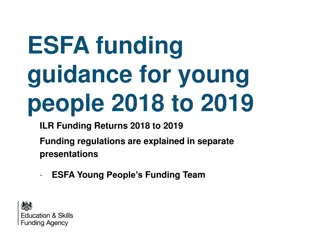Strategic Planning and Funding Requests in Public Health Administration
David G. Bastis, MPH, serves as the Group Manager for the Emerging & Acute Infectious Disease Branch. He plays a key role in developing state agency strategic plans and funding requests. The process involves bridging the gap between strategic development and seeking funding through the General Appropriations Act (GAA). The importance of exceptional items (EIs) in securing additional funding is highlighted, along with the emphasis on long-term strategic planning and effective disease outbreak response. Specific initiatives targeting disease outbreaks, disaster response, and healthcare-associated infections are outlined. Additionally, the focus on various counties in Texas for public health interventions is discussed.
Download Presentation

Please find below an Image/Link to download the presentation.
The content on the website is provided AS IS for your information and personal use only. It may not be sold, licensed, or shared on other websites without obtaining consent from the author.If you encounter any issues during the download, it is possible that the publisher has removed the file from their server.
You are allowed to download the files provided on this website for personal or commercial use, subject to the condition that they are used lawfully. All files are the property of their respective owners.
The content on the website is provided AS IS for your information and personal use only. It may not be sold, licensed, or shared on other websites without obtaining consent from the author.
E N D
Presentation Transcript
David G. Bastis, MPH Group Manager Emerging & Acute Infectious Disease Branch
Bridge between the development of the state agency's strategic plan and the General Appropriations Act (GAA) Formal request for funding made by each state agency Includes quantitative information such as project performance, projected cost, and methods of financing proposed for state services Information provided is related to narrative language which is integral to preparation of the GAA. The administrator's statement highlights significant changes in policy, provisions of service and purpose of new fund requests
Exceptional item (EI) is a request for funding in addition to the base budget Addresses priorities an agency considers of great importance (e.g. Ebola) Must be supported by data Support may or may not be sustained at the end of the biennium
Long term strategic planning Systems approach to public health Effective Surveillance, Data Collection, and Analysis Accurate description of the problem and possible solutions Complement EI resources with other funding sources
Disease Outbreaks and Disaster Response $1.5 million/year for foodborne epidemiologists positions in sixteen local health departments Preventing Healthcare Associated Infections $1 million/year focused on Clostridium difficile infections (CDI)
Austin Bell County Brazoria County Collin County Dallas County Denton County El Paso Fort Bend County Galveston County Harris County Hidalgo County Houston NE Texas San Antonio Tarrant County Williamson County Cameron County (New)
$45,000 $40,000 $35,000 $35,000 $30,000 $30,000 $25,000 Expenditures Balance $25,000 $20,000 $20,000 $15,000 $15,000 $10,000 $10,000 $5,000 $5,000 $0 $0 Personnel Travel Supplies Other Personnel Travel Supplies Other
Vacancies Keep positions filled! Range for total monthly expenditures $5,500 - $6900
Projected Surplus/Deficit vs. Project Needs FDBN INV FY 15 Projected Surplus/Deficit vs. Project Needs FDBN INV FY 15 $266,819 $130,000 $95,000 $41,819 $0 $100,000 $200,000 $300,000 $400,000 $500,000 Surplus Web Project Addition of LHD Potential Unspent
Funding for existing epidemiologist positions sustained AND Likely will be able to offer additional LHDS a position AND Transition all LHD epidemiologists contracts to generalist positions effective FY 16 for all selected LHDs More flexibility for LHDs idea is to be able to respond to many different emerging ID threats Allows DSHS EAIDB to focus more on supporting LHDs and DSHS Regional Offices with QA/QI initiatives and program review tools Contract amount is unchanged HAI funding for C. difficile projects sustained Expanding partnerships and implementing improvements to infection control in hospitals throughout Texas
Partnership with DADS with IPMA contractor Two CDI/IC trainings for thirteen assisted living centers Trained living center teams together administration, medical director, nursing director, environmental Followed-up with site visits Eighteen infection control training sessions conducted by TSICP Over 400 professionals attended statewide
Research projects with University of Houston and UT School of Public Health transitioning from research focus to applying evidence based interventions throughout Texas Texas A & M research group to help with economic analysis Texas Medical Foundation to help recruit hospitals and collect data
Oversight Oversight Training Training Provider Recruitment Program Evaluation Economic Impact Texas A & M Provider Recruitment Program Evaluation Economic Impact SME Evidence Based Interventions Analysis SME Evidence Based Interventions Analysis DSHS IPMA University of Houston UT School of Public Health HAI Advisory Panel TSICP UT School of Public Health Texas Medical Foundation APIC
DADs Assisted Living Centers Program Assessment and Evaluation Training Surveillance Antibiotic Stewardship Infection Control Laboratory Hospitals Long term care/Nursing homes Promoting Best Practices
